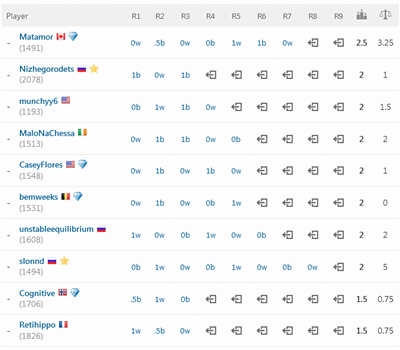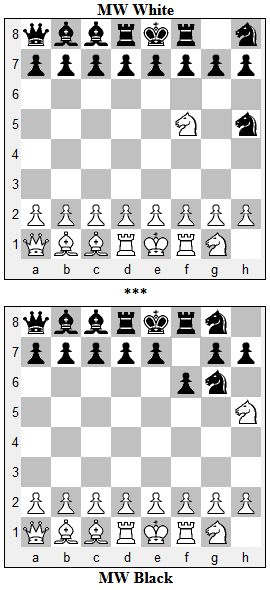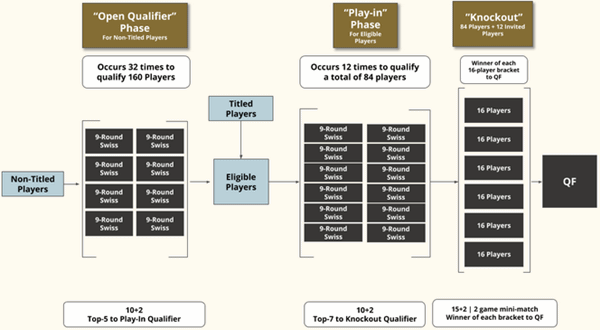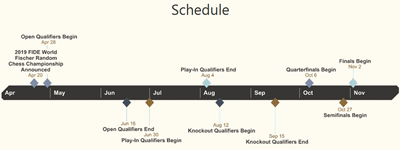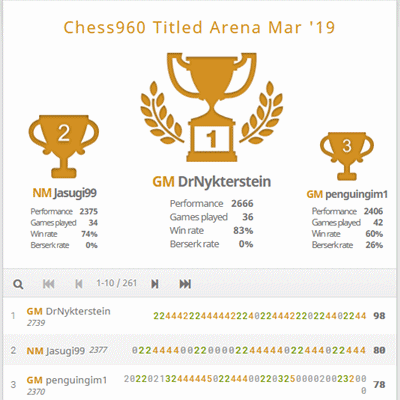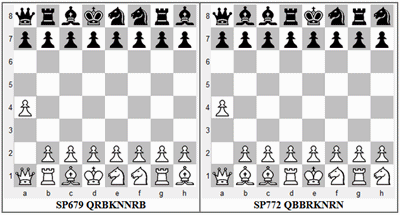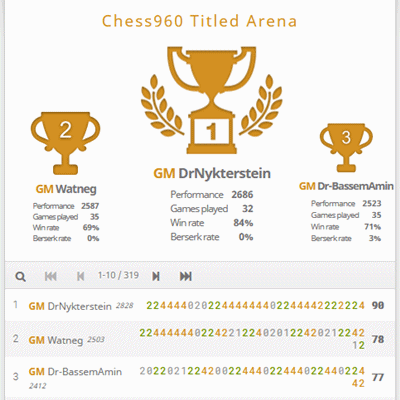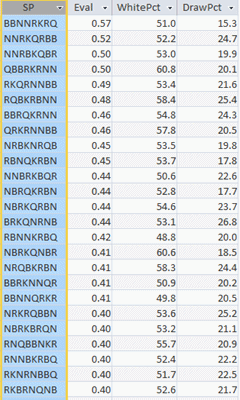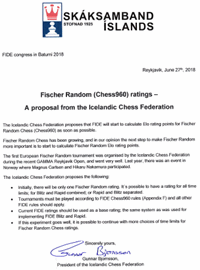The increasing strength of chess engines, the millions of computer games and the volumes of opening theory available to every player are making top-level chess less imaginative.
GM Kramnik approached Demis Hassabis, the CEO of DeepMind, with an idea:-
We tasked AlphaZero with exploring a variant that prevented either side from castling, trying different opening moves from both sides. The outcome was beyond our expectations!
A few days later Chessbase jumped at the concept in Vladimir Kramnik proposes an exciting chess variant! (chessbase.com; comments), supplemented with a video from ChessBase India, No-Castling Chess - Vladimir Kramnik suggests an exciting variant! (youtube.com). We know from a post last year, Purported Problems with Chess960 (April 2018), that Chessbase is faced with an existential threat from chess960. We've also seen on this blog that Kramnik is no fan of chess960:-
- The Kramnik Formation (March 2015)
- The Double Kramnik Formation (ditto)
Retaining the traditional start position (SP518 RNBQKBNR) and changing only the castling rules, resets theory so that chess fans can continue to run their engines and memorize calculated variations, thereby gaining an edge on an opponent in the next big game.
Ten years ago I explored the history of the castling rules in a series of posts:-
- 2009-09-12: The Origin of Castling in Chess
- 2009-09-14: More on Castling in Chess
- 2009-09-19: Davidson on the King's Leap
- 2009-09-20: Murray on the King's Leap, Spanish Style
- 2009-09-21: Murray on the King's Leap, Italian Style
Perhaps AlphaZero or one of its many descendants could explore the castling ideas that were abandoned centuries ago. Or perhaps Kramnik's no-castling idea could be applied to chess960. In that case, there is no need to retain Fischer's restriction that the King starts between the two Rooks. Then we're back to basic shuffle chess with its roots in Bronstein, Benko, and a host of other inventors. That makes far more than 960 start positions, a number I might calculate another time.
If Kramnik's idea is meant to retain engine analysis and memorization of opening variations, the same objective could be accomplished by switching to SP534 RNBKQBNR. This has the additional advantage of retaining most of the patterns and plans that arise from SP518.
Thinking up new ideas is the easy part; convincing other people of their worth is the hard part. When moving on from over-analyzed SP518, a statement of primary objectives would avoid hidden agendas.
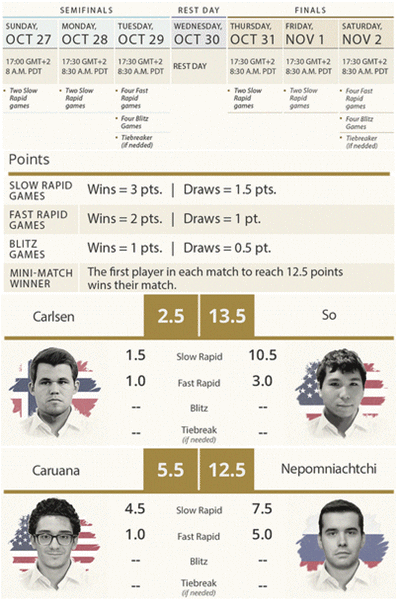
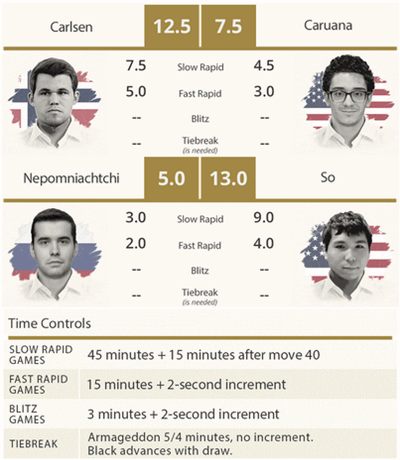
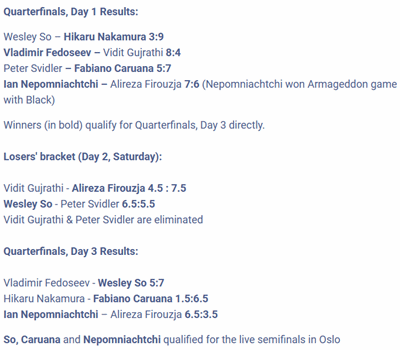
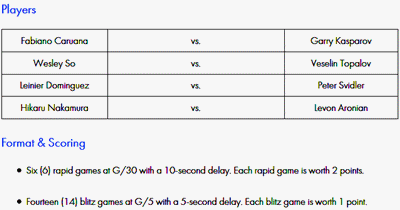
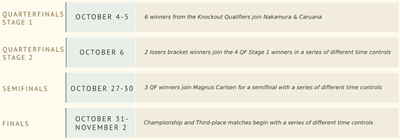
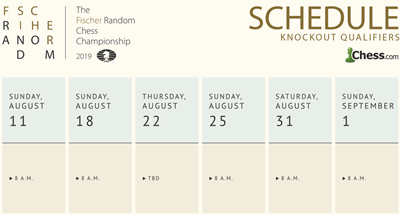
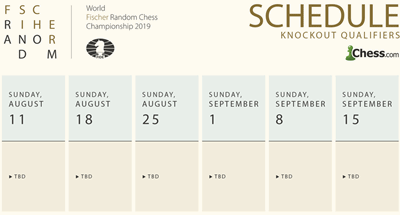
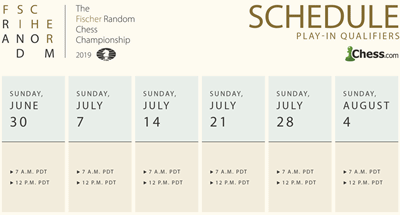
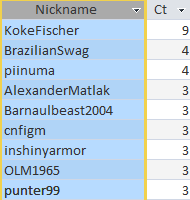 I loaded the list of qualified players into a database and created the chart shown on the left. It shows that there were nine players who qualified at least three times.
I loaded the list of qualified players into a database and created the chart shown on the left. It shows that there were nine players who qualified at least three times.
